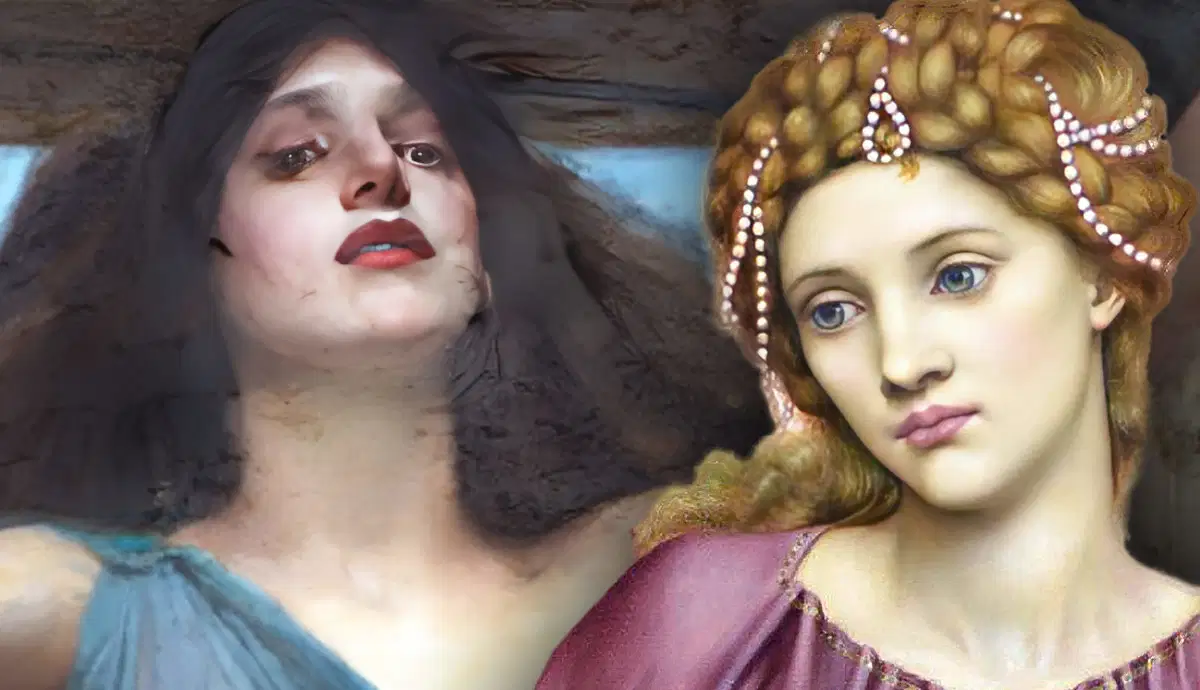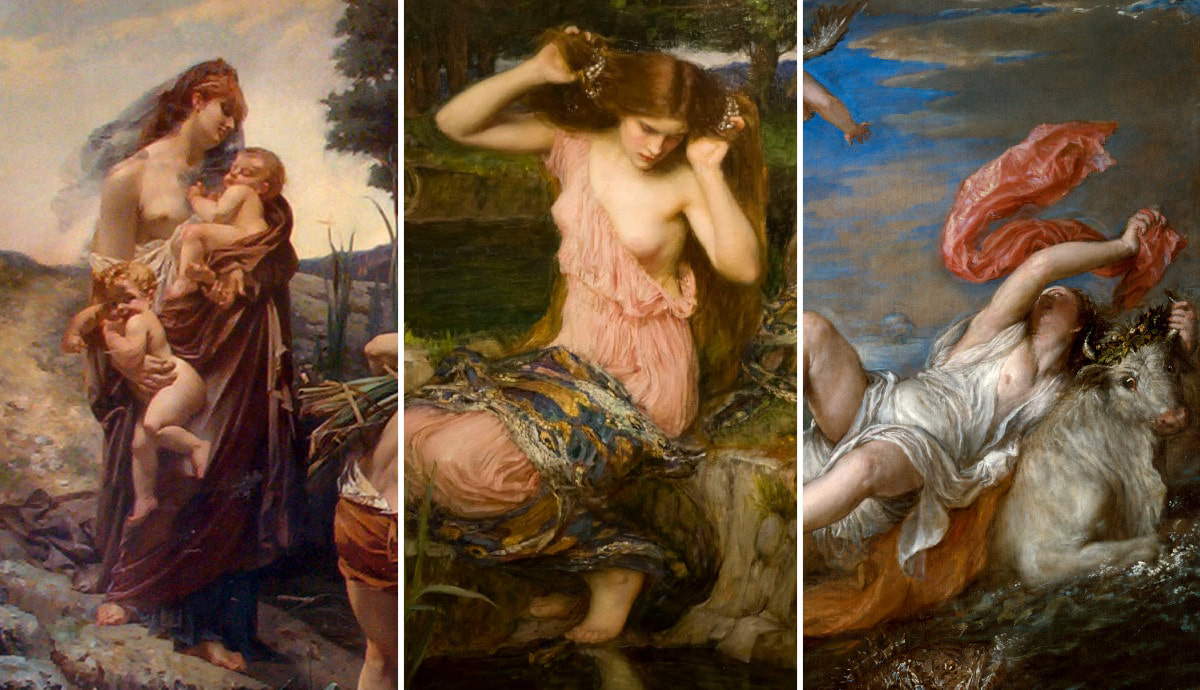
Hecate, the goddess of witchcraft, magic, and ghosts, is an enigmatic divine figure and one of the more popular minor gods in the Ancient Greek pantheon. While Hecate’s role in Greek mythology is well-known and understood, her parentage remains ambiguous. There are multiple different theories surrounding Hecate’s parentage, some more supported than others, and each one provides unique insight into her mysterious origins in the ancient world.
Asteria: Titaness of the Stars

The earliest written source about Hecate, written by Hesiod, states that her mother is Asteria, the Titaness goddess of stars. Asteria lived on Mount Olympus, alongside her sister, Leto. They were favorites of Zeus and eventually pursued by him, despite his marriage to Hera, Queen of Olympus. After Leto was impregnated, Zeus’ desires shifted to Asteria. In one version of her story, Zeus changed into the form of a great eagle and began to chase her. Desperate to escape, she transformed into a quail and dove into the Aegean Sea. She then emerged from the waters as an island, which was later known as the island of Delos.
When her pregnant sister, Leto, was on the run from a vengeful Hera, Delos was the only piece of land on Earth that would grant her refuge to give birth to her children. Thus, Delos became the famous birthplace and a sacred location for the Olympian twins, Artemis and Apollo.
Perses: Titan of Destruction

Hesiod’s Theogony states that while Asteria is her mother, Hecate’s father is the titan, Perses. This is also the most well-known and widely accepted theory surrounding Hecate’s parentage, perhaps because it derives from the earliest source mentioning Hecate. Although Hecate and Asteria are both woven into various Ancient Greek myths and texts, Perses is more of a mystery. And compared to other famous titans like Cronus or Atlas, there are very few sources that say much about him at all.
What is known is that he is the titan god of destruction, and his name translates to “destroyer.” He is a son of the titan gods, Crius and Eurybia, and is described by Hesiod as “eminent among all men in wisdom.” However, his role in Greek mythology is largely genealogical, as he is only known as a titan offspring and the probable father of Hecate.
Nyx: Goddess of the Night

Another theory about Hecate’s mysterious parentage comes from Bacchylides and leads to Nyx, the primordial goddess of night. She was one of the first deities in existence and the offspring of Chaos. One trait that she and Hecate share is their connection to the Underworld. While Hecate traveled through the realms of the living and dead with ease, Nyx actually dwelled in the depths of Tartarus, the darkest part of the Underworld. Nyx coupled with Erebus, the personification of darkness, had two children, Aether and Hemera, who were both associated with light and day.
However, Nyx is also the sole parent of many divine children, most of whom are known for their darker attributes. Aside from the possibility of Hecate, some of her most famous fatherless children are Thanatos, the god of death, Nemesis, the goddess of revenge, Eris, the goddess of strife, and Apate, the goddess of deceit.
Demeter: Goddess of the Harvest and Agriculture

According to the Orphic Hymns, Hecate is the daughter of Demeter, nature goddess of the harvest. This theory is only supported by Orphic literature, and it most likely stems from the close association between Hecate and Persephone. All three goddesses represent a part of the Triple Goddess, and Persephone is famously the daughter of Demeter.
Zeus, King of the Gods

One of the recurring answers about Hecate’s parentage is that Zeus, King of the Olympians and god of the sky, is her father. He is a part of multiple theories surrounding Hecate’s birth, however each one discusses a different possible mother. Demeter, Hera, and Asteria have all been linked to Zeus as possible parents of Hecate. Although Hecate took the side of Zeus and the other Olympians during the war against the Titans, it is not widely supported that he was also her father.
Overall, ancient sources seem to frequently disagree about Hecate’s true parentage in mythology, with Asteria and Perses being the most widely accepted conclusion. Regardless of whether she was born to two Titan parents, a primordial goddess, or Olympians, Hecate has carved out her own impactful legacy and place within Greek mythology and ancient religion.










